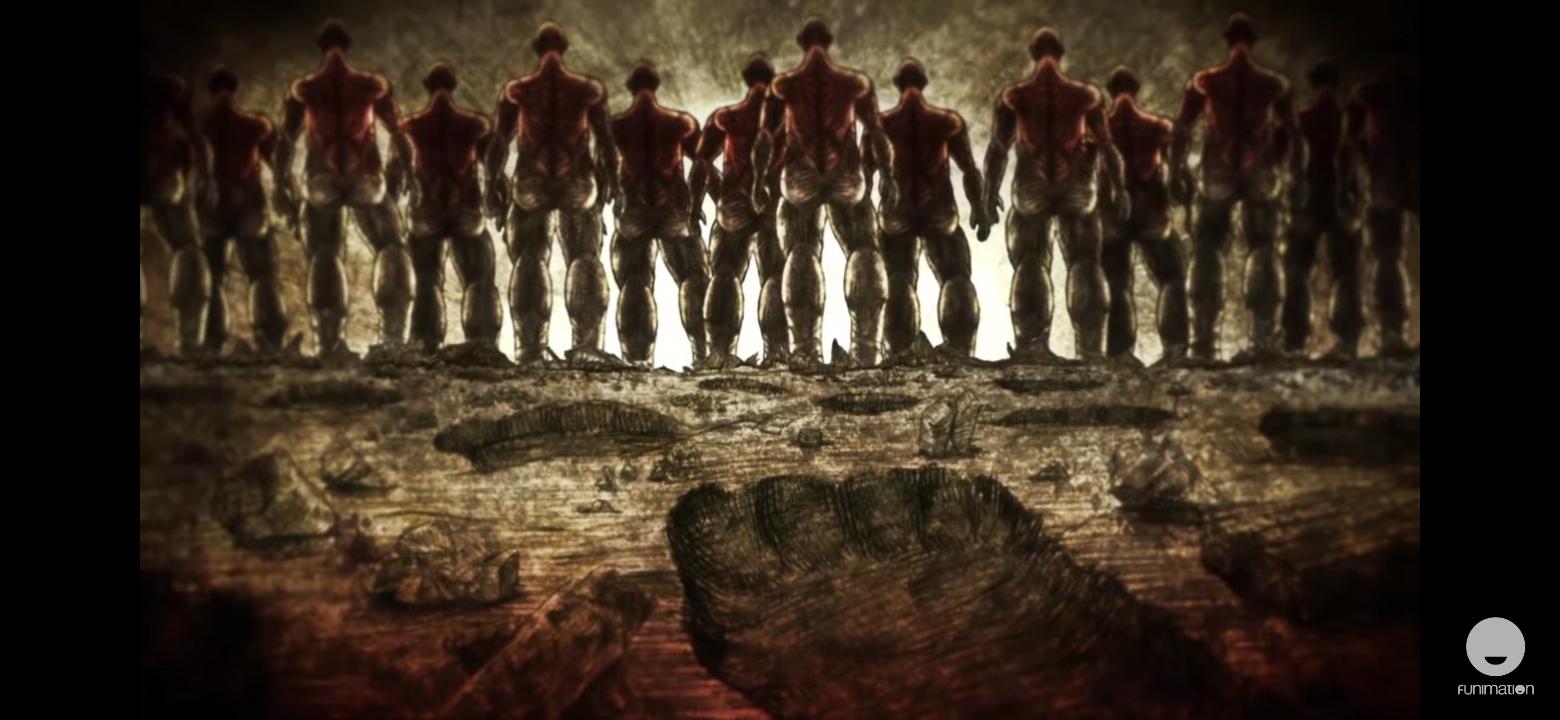!!!Spoiler Alert!!!
After ten long years since it first premiered, Hajime Isayama’s “Attack on Titan” anime series finally came to an end this past week, available for streaming on Crunchyroll. This highly anticipated 90-minute series finale included beautiful set pieces, voice acting and captivating music like most Japanese manga-turned-anime, making it enjoyable to experience. But the “Attack on Titan” series sets itself apart as a long-heralded modern masterpiece by viewers with its complex characters, its commentary on the human condition and how uncomfortable it makes audiences watching the main character’s demise.
“The Final Chapters Special 2” occurs directly after the end of “Special 1,” with the surviving members of Paradis’ Survey Corps and Marley’s Warriors attempting to stop protagonist anti-hero Eren Jaeger from ending humanity beyond the walls. By the start of “Special 2,” Eren has already killed half of humanity in gruesome fashion with the help of the founder of all the Titans, Ymir. “Special 2” delves into Eren’s psyche with conversations with his closest companions, Mikasa and Armin, who eventually succeed in stopping him by decapitating him. This ends Eren’s advance on humanity, although he succeeds in wiping out around 80% of it. Eren is buried under the same tree where the anime began, seemingly coming full circle and giving the viewer a false sense of comfort that there will be peace before, later, showing that centuries later the world is once again at war.
“Special 2” focuses heavily on Eren’s character and his justification for his actions in a way that delves into the human condition, leaving the viewer feeling uncomfortable. The discomfort comes from the fact that Eren is often a mirror for the viewer, and his non-traditional arc with his flawed characteristics makes him incredibly relatable. Viewers may find themselves rooting for Eren at points during his genocidal narrative arc because of how the story sets us up to root for Eren to accomplish his goal of achieving freedom. This is a goal he ironically never accomplishes despite his powers allowing him to do anything.
Eren’s story is set up to highlight humanity’s deepest desires and insecurities; we wish we were powerful enough to solve the problems that torment us and those we care about. Eren’s arc at the beginning of the anime is a perfect mirror of this desire, as one often feels powerless against life’s big problems, and his sudden ability to impact the world that has wronged him is empowering. He is a near-perfect anti-hero, which further increases his relatability as his quest for “freedom” is a noble one in theory but tragic when the viewer realizes that despite everything that’s done, Eren, nor anyone else, is ever truly free.
The story of “Attack on Titan” is an incredible one insofar as neither the protagonist nor any of the supporting characters are able to achieve seemingly anything. The characters “save” a world that did not heed their cry for peace, nor did it seem that the possibility of Titans was ended, marked by the final post-credit scene, which calls back to the founder Ymir’s beginning.
Critics have called the poorly written ending an unsatisfying closure to the decade-long anime that has become a household name. But, it’s clear that this was Isayama’s intention as a rude awakening for those who saw themselves in Eren and his actions.
As a younger viewer, early Eren seems to derive his ego from his strength, driving him and those around him into a brighter future and that resonates strongly. His conviction to follow his goals is awe-inspiring, and it appears in his arc, much like other shonen anime, the reader can live out their personal dreams through Eren. The vulnerability displayed at Eren’s demise beneath his formidable exterior, as he confesses to his friend Armin that his justifications were flawed and expresses a desire for Mikasa to remember him completely, subverts conventional storytelling. His ego turns out to be his biggest weakness, destroying him and his relationship with those around him.
That aspect of Eren is completely and utterly human. His pain and hopelessness are something we’ve all felt in some way or another. His quest for freedom is flawed, and he breaks down when he realizes it is all for nothing. Witnessing Eren’s demise means releasing your inner child, shedding the remnants of petty tantrums and abandoning the naive, overly simplistic worldview that once justified them. Completing “Attack on Titan” breathes fresh perspectives into the narrative, which is why it is one of the greatest works of modern fiction.








